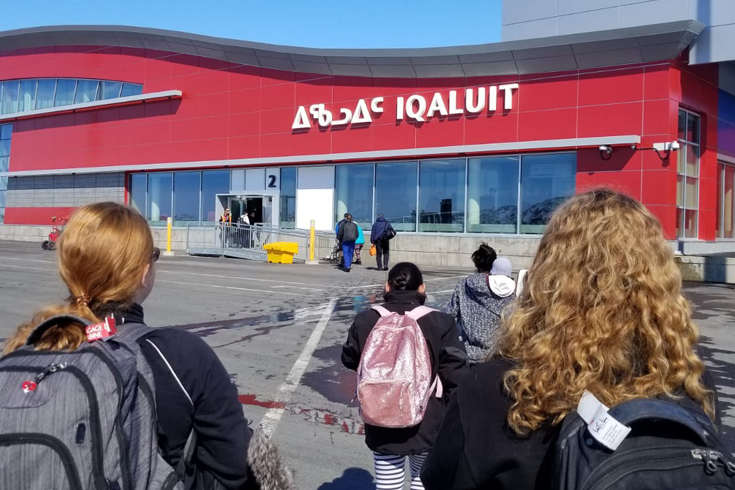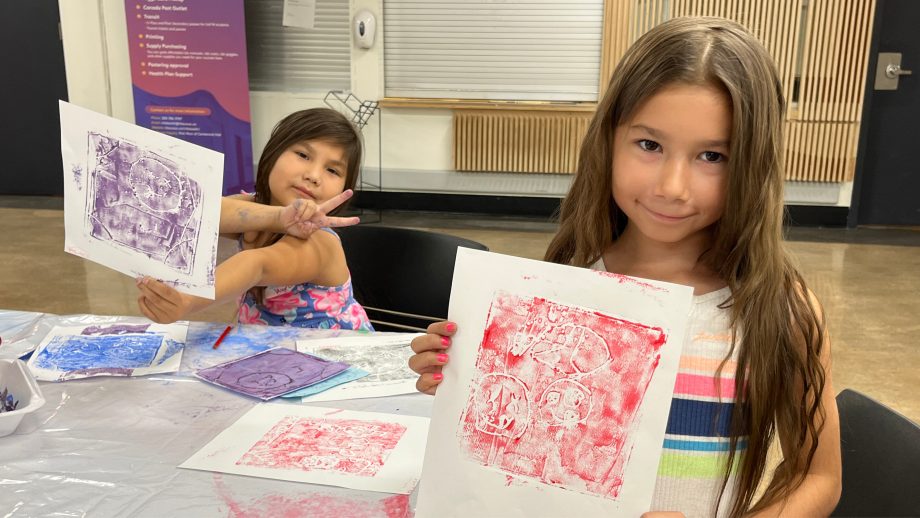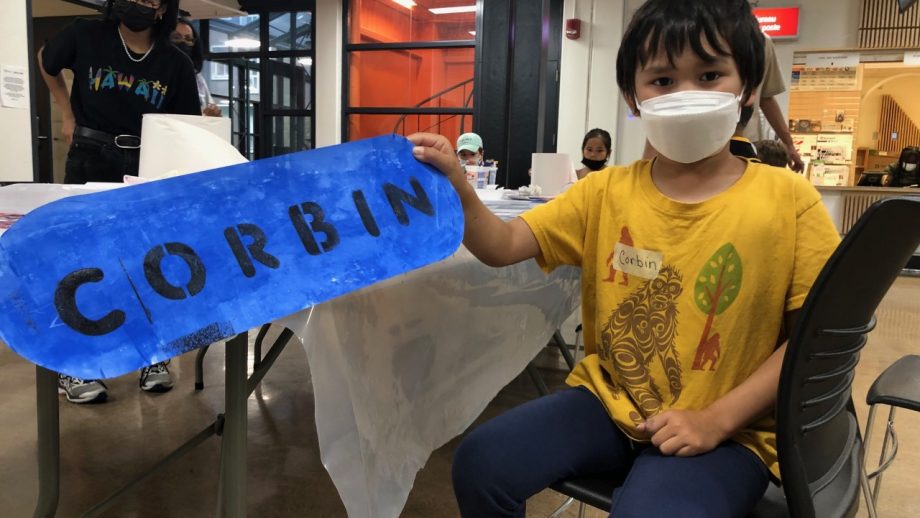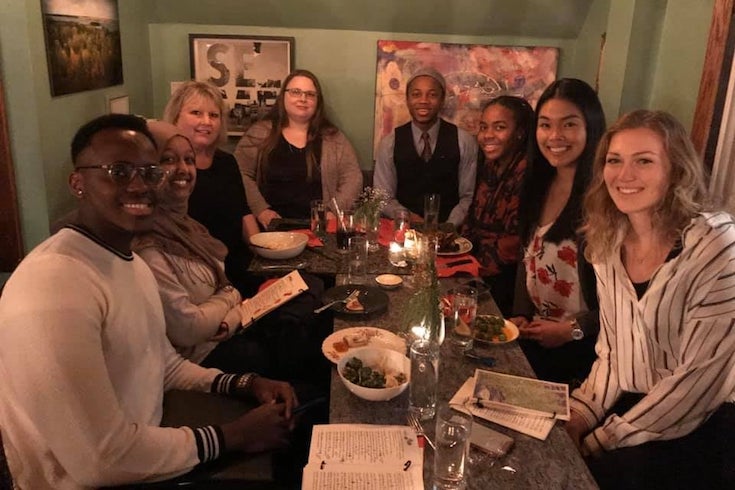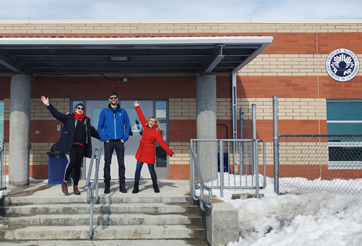Michelle Trudel, Erica Mitchell, and Mamneet (Sheena) Gurm spent a week in Nunavut this spring, making it the second year in a row Let’s Talk Science sent a University of Winnipeg volunteer team to the Arctic.
Getting to Hall Beach was more of an adventure than they anticipated, as inclement weather delayed their flights in and out of the community. This was a tangible reminder of the remoteness of the region and the unpredictability of transportation options in the North.
They spent their time in Hall Beach delivering a series of workshops and community outreach events. Trudel loved seeing eyes light up as students discovered how much fun they could have learning STEM (science, technology, engineering, and mathematics).
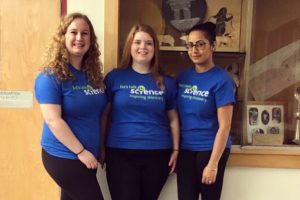
Michelle Trudel, Erica Mitchell, and Mamneet (Sheena) Gurm in Hall Beach, Nunavut. ©Let’s Talk Science
To keep children engaged, the team modified activities whenever possible to be relevant to Arctic life and Nunavut’s science curriculum. In one of their workshops, for example, they learned how animals use their senses to find food and how our senses work together to tell us about the world around us. Instead of the animals listed in their manual, Trudel, Mitchell, and Gurm shared examples of polar bears, snowy owls, seals, and Arctic foxes.
“We built upon existing knowledge, so students could understand and apply the concepts we were teaching in a familiar way,” said Trudel. “This made it easier to communicate ideas, as they were already familiar with the animals.”
The team also planned many hands-on experiments to keep the children engaged.
“This is common when we go into rural communities, as the experiment tends to be more engaging than the discussion, but this was critical for our trip to Hall Beach,” said Trudel. “The Inuit culture is very strong in this community, with younger students primarily speaking Inuktitut. Everything we said had to be translated by the teacher.”
Trudel, Mitchell, and Gurm tried to learn some words in Inuktitut in order to communicate more effectively. They also had opportunities to connect with students outside the classroom, walking to school or to the store, and playing games.
“This made it easier for us the next day in the classroom,” said Trudel. “We got to learn a little bit more about life in Hall Beach, and they got to learn a little bit more about us.”
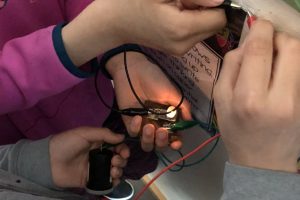
Students in Hall Beach learn how to complete an electrical circuit in one of many hands-on science activities. ©Let’s Talk Science
Classroom activities included a crime lab, colourful chromatography, exploration Mars, and an electrifying experiment where students learned how to complete a circuit to turn on a light bulb. This caused a lot of excitement.
“The kids immediately covered the windows, turned off the light and explored what other materials in the room would complete the circuit,” said Trudel. “Everything from staples in the wall to the chair leg was tested.”
This was Trudel’s second visit to the Arctic community. She hopes that Let’s Talk Science continues to send UWinnipeg students to the Arctic as these outreach initiatives have a huge impact.
“In the future, we hope to continue our visits to Hall Beach, bringing resources to the community that may not be easily available to educators there, and keeping kids engaged in school and learning,” she said.
Trudel and Mitchell both graduate this spring with a Bachelor of Science in biology. Gurm previously completed a BSc and MSc in biology at UWinnipeg, and is planning to return in September 2019 for a Bachelor of Education. All are thankful for the opportunities Let’s Talk Science has given them to share their passion for STEM with communities both close to, and far from, home.
About Let’s Talk Science outreach at UWinnipeg
Let’s Talk Science is a national charitable organization committed to inspiring and empowering Canadian youth to develop the skills they need to participate and thrive in an ever changing world. To accomplish this, Let’s Talk Science offers a comprehensive suite of science-, technology-, engineering-, and math-based (STEM) programs to support youth, educators, and volunteers across Canada.
UWinnipeg’s volunteer team has been nationally recognized for its science outreach work in Manitoba and across the country. University students interested in volunteering with Let’s Talk Science can email letstalkscienceuw@gmail.com for more information.

